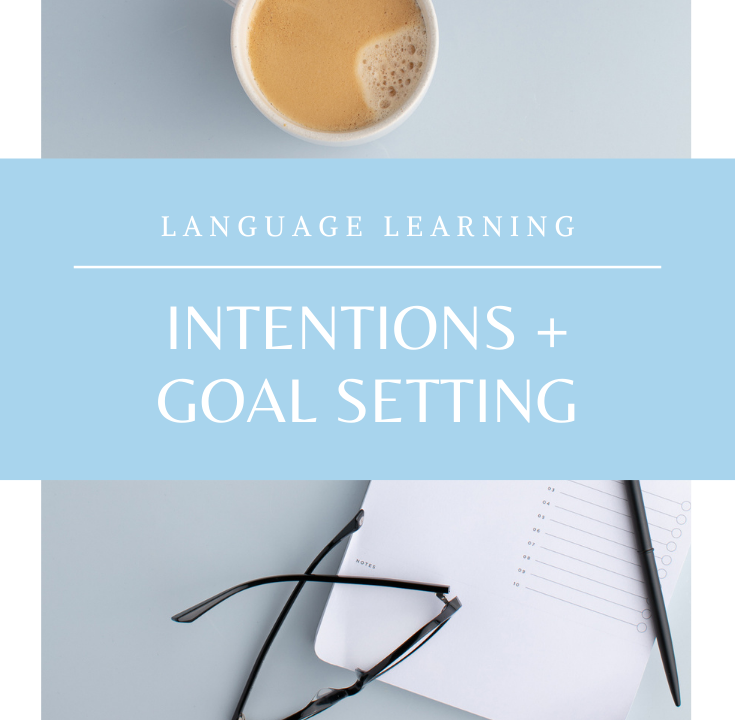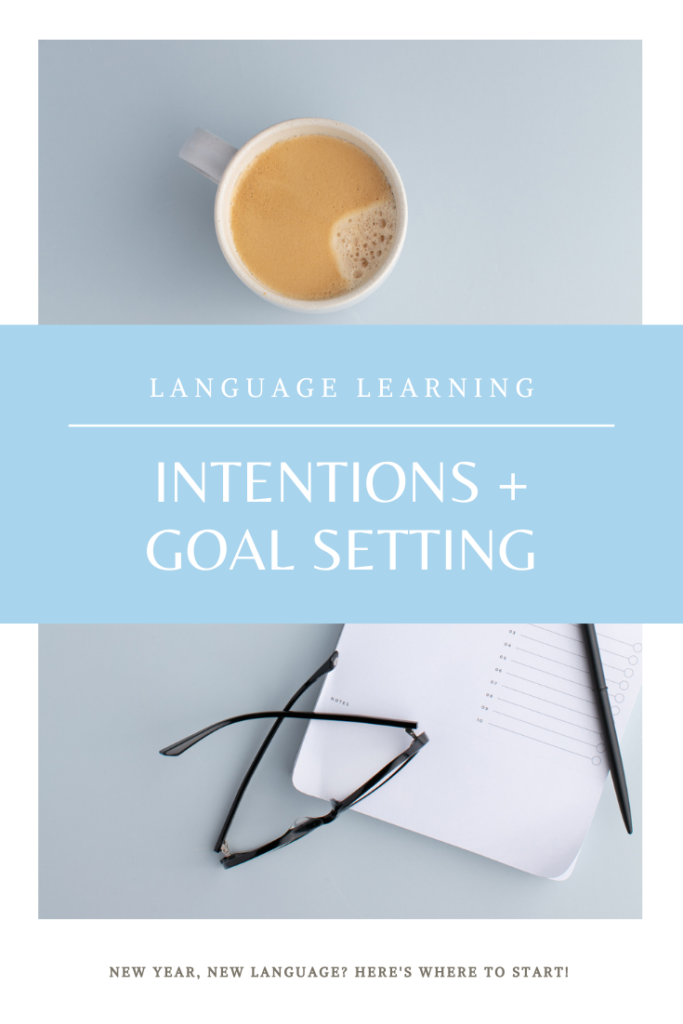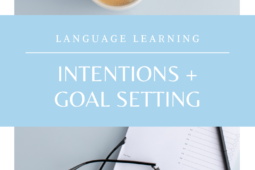Welcome to the very first post in the series for beginning language learners! While many of the topics discussed here can be applied to studying any language, most of the examples on this site will be in French + English.
Are you the type to set New Years resolutions? To be honest, I’ve tried and failed in the past on numerous occasions. While it is true, there is nothing special about January 1 (it’s not going to magically make you change as a person), there is a certain call to refresh or reset with the changing of time.
If learning a new language is on your radar this year, good news is you’re in the right place. If you’re reading this after the New Year, no worries either! At the beginning of each new class, my students and I take time to set intentions and goals no matter the time of year.
Why is this so important? I believe everyone is capable of learning. However, most people don’t have the unlimited time and resources to trudge through the massive amounts of information floating around the internet. If we never establish a clear ‘why’ or ‘how’, we will most likely not follow through on our desires. Even if traditional goal setting hasn’t been your thing before, I would still highly encourage you to think through and write down your responses.
Find Your Why
First and foremost, we have to establish a why- the reason you want to do this in the first place. This is paramount because we will use this as the yardstick we measure everything against. You should answer the question “Why do you want to learn French?” and answer with as much detail as possible. For example, if your answer is because “I want to be fluent” that’s a great start, but dig deeper. Why do you want to be fluent? What is fluency? How will you know when you get there? Keeping pushing with your ‘why’. Once you have a concrete answer, it will be your guide. If the response is “I want to be able to navigate my travels in French on my trip in 2022” now we can decide what tools are right for accomplishing that task. Found materials for reading Foucault in the original French? That might be fun, but won’t necessarily help with your ability to order a coffee or ask for directions.
Evaluate Your Tools + Methods
Once we’re settled on our specific and detailed reason, we can now focus on what we’re going to learn. What tools and resources will you need? Most resources will fall under one or more of the basic language skills: reading, writing, speaking, and listening. When we say someone is fluent in a language, we generally mean they have a command on all 4 skills. However, depending on your ‘why’ you may want to focus heavily on one or two in particular. In our examples above, the person who is going to travel will need to use all 4 skills, but will rely a lot more on their speaking and listening as they order in a restaurant. A person who needs to be able to use source materials in their research paper might opt for focusing just on their reading comprehension in French. This would be the time to think about if a class might help you accomplish your ‘why’ or if something like MeetUps where you practice your French would be better suited.
Set a Timeframe
This is a tricky one. On one hand, learning isn’t linear. You may not achieve fluency in the time you’re hoping to. On the other, if the timing is too vague, you might not ever feel the push to start. This is a great place to give yourself a time-based check in- “I want to do X by Y date/month/etc”. Let’s say you’re going to give yourself two months before joining a conversation practice group or 6 weeks of studying on your own before getting a tutor. Maybe you have a trip planned or are starting a course with a strict end date. Break that down in smaller increments to see what you can do on a daily or weekly basis. Whatever the case, give yourself date where you will take some time to see what you’ve done so far.
Reflect + Measure
How will you know that you’ve accomplished your ‘why’? We should set the parameters for measuring our progress. This can also be the time where you reflect on what you’ve done so far. Did you achieve what you intended to? What was enjoyable? What wasn’t? What does continuing your learning look like for you? What tools were helpful? What wasn’t? As we take the time to think about all that we’ve done, we can adjust our end goals if needed and start the process again with a new ‘why’.
Want to share your goals? Leave a comment below! I’d love to see what your French goals are for 2022!
Need some more help with writing? Click the link or image below to sign up for the free Intentions + Goal Setting worksheet.



